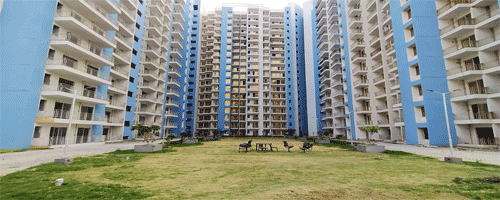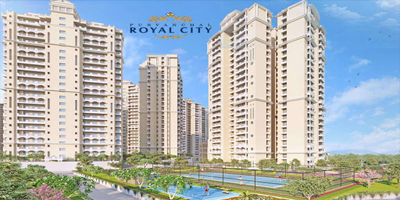NRI Services & FAQ's !
Q1. Who is an NRI?
Ans.: Under the Foreign Exchange Regulation Act of 1973, Non-Resident Indians are:
Indian citizens who stay abroad for employment or carrying on business or vocation outside India or for any other purpose in circumstances indicating an indefinite period of stay abroad; OR
Government servants who are posted abroad on duty with the Indian missions and similar other agencies set up abroad by the Government of India where the officials draw their salaries out of Government resources; OR
Government servants deputed abroad on assignments with foreign Governments or regional/international agencies like the World Bank, International Monetary Fund (IMF), World Health Organisation (WHO), Economic and Social Commission for Asia and the Pacific (ESCAP) OR
Officials of the State Government and Public Sector Undertakings deputed abroad on temporary assignments or posted to their branches or offices abroad.
Q2. Who is a foreign citizen of Indian Origin?
Ans.: A foreign citizen is deemed to be of Indian Origin if : i) he held an Indian Passport at any time or ii) he or his father or paternal grand father was a citizen of India by virtue of the Constitution of India or the Citizenship Act, 1955. However this does not apply to citizens of Pakistan, Bangladesh, Afghanistan, Bhutan, Sri Lanka or Nepal.
Loan:
Q3. Does RBI have any guidelines for loans to NRIs / PIOs?
Ans.: There are guidelines issued by the by the Reserve Bank of India for grant of Housing Loans to NRIs. The guidelines are:
(a)The loan amount shall not exceed 85% of the cost of the housing unit.
(b)Own contribution, which is the cost of housing unit financed less the loan amount, can be met from direct remittances from abroad only through normal banking channels, your Non-Resident (External) [NR (E)] Account and /or Non-Resident (Ordinary) [NR (O)] account and /or Non-Resident Special Rupee account [NRSR] in India
(c)Reimbursement of the loan, comprising of the principal and interest including all the charges are to be remitted from abroad only through normal banking channels, your Non-Resident (External) [NR (E)] Account and /or Non-Resident (Ordinary) [NR (O)] account and /or Non-Resident Special Rupee account [NRSR] in India.
Q4. Can authorized dealer grant loans to NRIs for purchase of a flat / house for residential intention?
Ans.: Authorized dealers have been granted permission to grant loans to NRIs for acquisition of house/flat for self-occupation on their return to India subject to certain conditions Repayment of the loan should be made within a period not exceeding 15 years out of inward remittance through banking channels or out of funds held in the investors NRE/FCNR/NRO accounts.
Q5. Can authorized dealer grant housing loan to NRIs where he is a principal borrower with his resident close relative as a co-applicant / guarantor or where the land is owned jointly by such NRI borrower with his resident close relative?
Ans.: Yes. Such housing loans availed in rupees can also be repaid by the close relatives in India of the borrower.
Q6. What are the documents I have to submit along with the application?
Ans.: The following documents are normally to be submitted along with the application:
(a) Photocopy of the labor contract and English translation duly countersigned by your employer.
(b) Latest salary certificate (in English) specifying the following: Name (as it appears in the passport) , Date of joining , Passport Number, Designation , Perquisites and salary.
(c) Photocopy of labor card/identity card
(d) Photocopy of valid resident visa stamped on the passport.
(e) Photocopy of monthly statement of local bank account for the last 4 months.
(f) Property related documents.
Q7. Can an NRI take loan against the security of immovable property in India? Are there any restrictions on the use of loan amount?
Ans.: An NRI can borrow against the security of immovable property from Authorized Dealer subject to following conditions:
i) The loan should be used for meeting the personal requirements or for borrowers own business purposes; and
ii) loan should not be used for forbidden activities, namely;
(a) business of chit fund, or
(b) agriculture or plantation activities or in real estate business, or construction of farm houses, or
(c) trading in Transferable Development Rights (TDRs), iii) the loan amount cannot be remitted outside India,
iii) Repayment of loan shall be made from out of remittances from overseas or by debit to NRE/FCNR/NRO account or out of the sale profits of shares or securities or immovable property against which such loan was granted.
Q8. What kinds of incentive can NRIs, PIOs and foreigners look forward to in the Indian real estate industry that favours investment?
Ans.: The relaxation of FDI in the construction development sector announced in March 2006 allows NRIs, PIOs and all foreigners equal opportunity with their Indian counterparts in the Indian real estate sector. The new guidelines states that before selling, the site has to be developed, constructed upon or fulfill the criteria of minimum one year development.
i) NRIs, PIOs and foreigners can now invest in land, buy it, construct upon it or develop it, sell constructed buildings/developed plots
ii) FDI through automatic route can also flow in not just for the housing sector, but also for townships, housing, commercial area, and infrastructure development
iii) Restrictions on minimum area of land, minimum number of units has been removed
iv) Minimum constructed area required is 50, designated area is 25 acres
Q9. Is there any specific target to actually complete your construction development work?
Ans.: The norms are quite liberal. It allows you five years to finish at least 50% of your project from the date of getting all the clearances. In normal circumstances the project can be completed within three years. It helps protect the customer and keeps fly-by-night people at bay.
Q10. How does the automatic route work?
Ans.: The automatic route has simplified much of the cumbersome investment process. Approval from the Reserve Bank is not required anymore. No need to go to the Foreign Investment Promotion Board either. The easing of paper work and relaxation of formalities has given a boost to overseas investor confidence for investing in India.
Q11. What aspects should overseas investors look at in the Indian real estate market to facilitate the suitability of their projects?
Ans.: Any NRI before investing in the Indian real estate should also focus on the particular segment that he plans to invest in - like residential, retail or office space. Consulting legal firms and real estate firms providing professional NRI services can be very useful.
Q12. What are the steps an NRI should follow for getting all the clearances in a hassle-free manner? Whom should one meet in the process?
Ans.: A lot depends on the segment you want to invest in. It helps to gauge the future state and to know what utilities are available.
i) An office market investment, for instance, requires you to:
ii) Get in touch with consultants for advice on the city of choice.
iii) Outline your objectives, the size of your investments.
iv) Have an approximate of the returns you are expecting.
v) The yield that has evolved from distinct parameters ranges between of 8 - 8.5% to 12% for office space and 4% - 6% in residential
vi) Whether the land is for investment or for development is also a deciding factor, as is the local demand-supply situation While investing in India, the availability and quality of infrastructure or utilities like power, connectivity, security and long-term future plans need to be scrutinized.
Q13. Is a single window clearance possible?
Ans.: Single window in a real estate project in India sometimes may be difficult, because of the involvement of several authorities. If it's a multi-storied building, you need to get clearance from town planning authorities, clearance on design, elevators, fire fighting agencies, etc. Efforts are on to make the process simpler and transparent, though.
Q14. How is the sanctioning authority and monitoring authority different in India?
Ans.: (a) In some states, the Municipal authority is the ultimate monitoring authority.
(b) In smaller states and in non-urban areas, the town and country planning corporation acts as the monitoring authority.
(c) In urban areas where most of the construction takes place, the municipal authority wields power in giving the final permission and sanctioning drawings and plans. Clearances on electricity, water supply and other utilities come from here.
The new FDI norms state that the minimum investment has to be USD 5 million for 51% shareholding. Does this include funding of subsidiaries as well?
(a) If you have a wholly owned subsidiary by a foreign company then the minimum capitalization norm is USD 10 million
(b) If you have a joint venture, the ratio 74:26 or 51:49 is immaterial. For a joint venture, the minimum capitalization is USD 5 million in foreign exchange
(c) This minimum amount of foreign exchange is required to arrive within six months from the date of commencement of business. The six months can be used to bring that money into India.
Post Your Requirement !
Projects in Major Cities !
Search, Select and Join the group for the projects you like. Get all the information with a single click.



